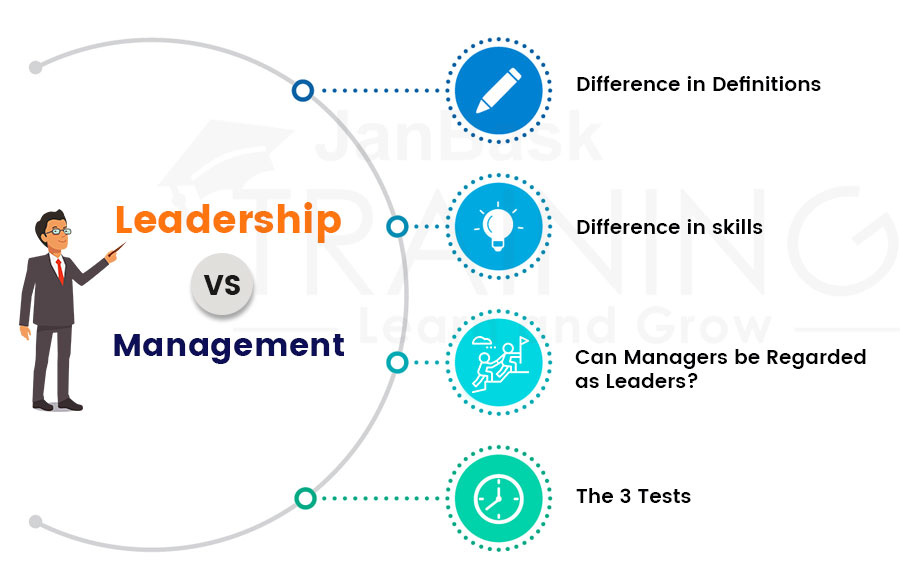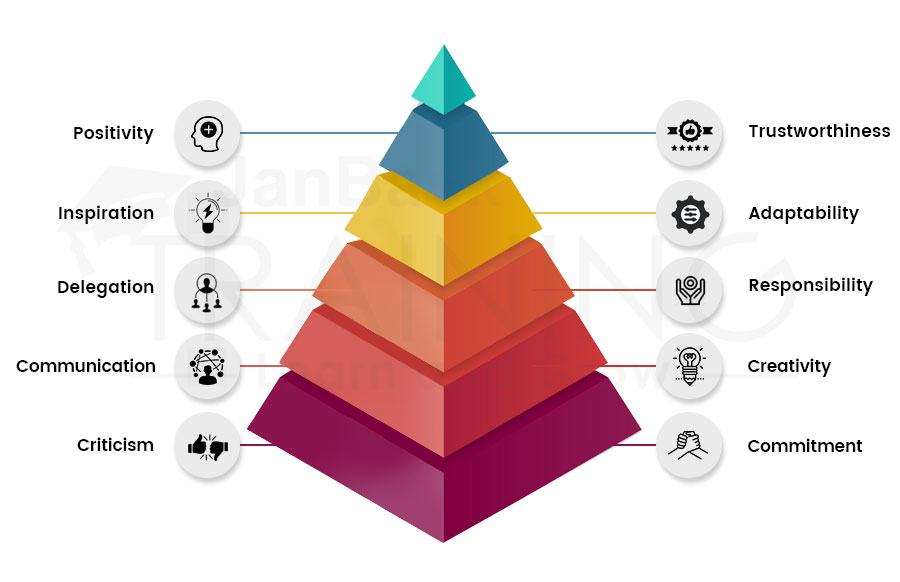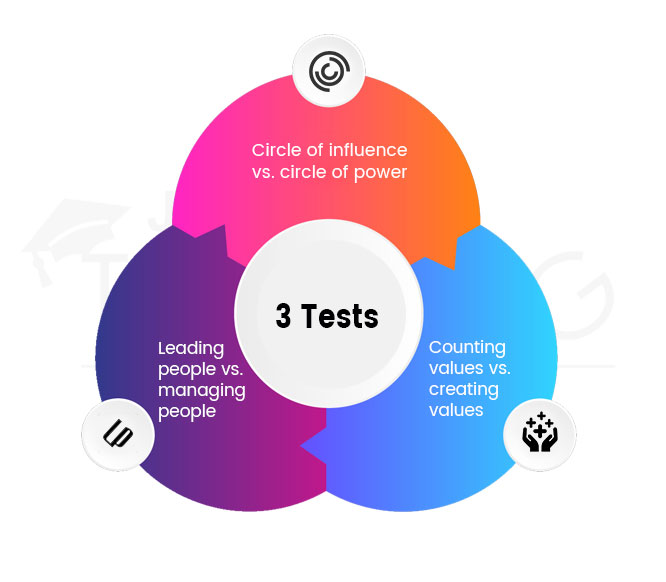Leadership and Management are the terms which are used quite often in all industries. Many a time people use these terms interchangeably. So, the main question that arises is what the difference between Leadership and Management is and how are they related to each other? In this blog, we will try to understand both Leadership and Management independently and collectively.  Difference in definitions
Difference in definitions
Management is the discipline of overseeing the entire process in the best possible way. Management can be considered as an art as well as a skill of getting the tasks done through people as per the requirement. Management is the process of dealing with people along with the prevailing conditions and constraints surrounding the process that needs to be accomplished. Managers are the people who take the responsibility of planning, organizing and coordinating. They have to be precise and continually reassess their procedure to ensure that they're advancing as per the plan. If not, they have to adapt as per the situation and make the necessary changes to accomplish the planned task.
Leadership, on the other hand, is all about how you influence and motivate a group of people towards a common goal. President Dwight D. Eisenhower defined Leadership as the art of getting someone else to do something you want done because he wants to do it. There is a saying that Leaders are born not made. In contrast to Management, Leadership cannot be taught or instructed, although it may be learned and enhanced with the help of mentoring and coaching.
Difference in skills
Read: How To List A Certificate On Your Resume: A Complete Guide (With Examples and Samples)
To understand the variance between Leadership and Management in terms of skills, it is critical to discover the skills that are required to become a good leader and manager independently.
A good leader must be efficient in the following skills. 
- Positivity: To keep morale high, a leader must keep an inspirational mentality, paying little heed to the circumstance.
- Inspiration: This is a major skill that differentiates Leaders from non-Leaders that is getting individuals inspired to do what you need them to do.
- Delegation: A good leader knows that doing everything on his own is an impeccable task and detrimental for the morale of the team. He must start believing others and delegate the task accordingly to complete the task.
- Communication: A good leader must have the capacity to spread information and listen effectively.
- Criticism: A leader must tune in with their group, teams, stakeholders, mentors, advisors, etc. and pay attention to their assessments.
- Trustworthiness: A leader must know that if you don't initially ingrain a feeling of trust in people, they aren't going to believe you or do whatever you ask them to.
- Adaptability: A good leader must understand that he must be flexible as circumstances can change at any instant and following a rigid approach can be detrimental.
- Responsibility: In case you're not taking your serious about the responsibility and your conduct then you can't anticipate that individuals should tail you.
- Creativity: There can be numerous challenges in one’s path, but finding a simple solution to complex situations requires creativity.
- Commitment: On the off chance that you are not dedicated to the venture, you cannot hope to lead others.
A good manager must be well equipped with the following skills
- Forward Planning: This is a critical skill that all manager must possess. A manager must be able to plan by the business requirement along with the constraints and risks that one may face in the project.
- Inspiration: A good leader must motivate himself as well as other subordinates so that their work collectively aligns with the Management goal
- Interpersonal skills: A good manager must act as a link between different groups so that proper coordination can take place and the entire process and be streamlined.
- Organizing: A good manager must be able to keep everything organized so that everyone can focus on different tasks without getting disoriented. This will enhance the productivity and efficiency in the workplace.
- Correspondences: A good manager must be aware that communication is always the key for successful completion of any project. It is vital to keep all stakeholders informed about the entire work process through proper monitoring and giving them the daily updates along with the challenges they are facing.
- Mentoring: A good manager knows that if one needs to improve productivity, training and mentoring is a must. On several occasions, Managers take the responsibility of guiding and mentoring their subordinates so that they can enhance their competency and productivity.
- Strategic Thinking: It may be defined as how people think, view, assess and create a future for themselves and the others. A good manager is always able to envisage solutions to various problems that are in line with the organizational objectives and goals
- Delegation: It is very critical for Managers to identify the right person for the right job and to delegate the tasks as per the competency, talent, and enthusiasm of the person
- Business Awareness: Managers need to have a sharp feeling of the business and commercial condition in which they are working.
- Problem Solving: There can be numerous hurdles in a project, but the manager needs to address these issues and find a reliable solution as quickly as possible.
Can Managers be regarded as Leaders?
This answer to this question is yes, but sadly, it is not possible for all Managers to become Leaders. Managers can become Leaders only if they can assume the Leadership responsibilities of Management which incorporates communication, providing inspiration, direction, motivation and urging workers to ascend to a higher level of productivity.
Read: Top 10 Templates on How to Write a follow up Email After Interview
The 3 Tests
If you are unsure whether you made the transition from being a manager to a leader, then you need not worry, Vineet Nayar introduced the three tests in HBR to clarify this doubt. 
- Circle of influence vs. circle of power – As we already know that Managers have subordinates working under them whereas Leaders have followers which infers that Leaders create a circle of influence and on the other hand Managers create a circle of power. The fastest method to make sense of which of the two circles is around you is to check the number of individuals who come to you for counsel but doesn’t fall into your reporting hierarchy. If the number is more, then it is a sign that many people perceive you as a leader.
- Leading people vs. managing people – If we compare the responsibilities of a manager to that of a leader then we can conclude that manager has to control a group of people to accomplish a task whereas Leaders have to motivate and influence a group of people to work toward a common objective. If you want to understand whether you are leading people or managing them, you must introspect whether you can inspire and influence people or you believe in controlling them.
- Counting values vs. creating values – Managers are the one who is only concerned with the outcomes or number that they are supposed to achieve. Leaders, on the other hand, believe in creating values that are over and above the value that the team creates.

Conclusion
Read: Technical Track vs Management Track
From the above discussion, it is quite evident that both Management and Leadership are interrelated. Management is a broader domain and Leadership is a subset of Management. Though we cannot deny the fact that there is a dearth of Managers with prominent Leadership skills.
 FaceBook
FaceBook
 Twitter
Twitter
 LinkedIn
LinkedIn
 Pinterest
Pinterest
 Email
Email
Trending Courses
Cyber Security
- Introduction to cybersecurity
- Cryptography and Secure Communication
- Cloud Computing Architectural Framework
- Security Architectures and Models
Upcoming Class
8 days 30 Dec 2025
QA
- Introduction and Software Testing
- Software Test Life Cycle
- Automation Testing and API Testing
- Selenium framework development using Testing
Upcoming Class
7 days 29 Dec 2025
Salesforce
- Salesforce Configuration Introduction
- Security & Automation Process
- Sales & Service Cloud
- Apex Programming, SOQL & SOSL
Upcoming Class
4 days 26 Dec 2025
Business Analyst
- BA & Stakeholders Overview
- BPMN, Requirement Elicitation
- BA Tools & Design Documents
- Enterprise Analysis, Agile & Scrum
Upcoming Class
4 days 26 Dec 2025
MS SQL Server
- Introduction & Database Query
- Programming, Indexes & System Functions
- SSIS Package Development Procedures
- SSRS Report Design
Upcoming Class
4 days 26 Dec 2025
Data Science
- Data Science Introduction
- Hadoop and Spark Overview
- Python & Intro to R Programming
- Machine Learning
Upcoming Class
5 days 27 Dec 2025
DevOps
- Intro to DevOps
- GIT and Maven
- Jenkins & Ansible
- Docker and Cloud Computing
Upcoming Class
2 days 24 Dec 2025
Hadoop
- Architecture, HDFS & MapReduce
- Unix Shell & Apache Pig Installation
- HIVE Installation & User-Defined Functions
- SQOOP & Hbase Installation
Upcoming Class
11 days 02 Jan 2026
Python
- Features of Python
- Python Editors and IDEs
- Data types and Variables
- Python File Operation
Upcoming Class
12 days 03 Jan 2026
Artificial Intelligence
- Components of AI
- Categories of Machine Learning
- Recurrent Neural Networks
- Recurrent Neural Networks
Upcoming Class
5 days 27 Dec 2025
Machine Learning
- Introduction to Machine Learning & Python
- Machine Learning: Supervised Learning
- Machine Learning: Unsupervised Learning
Upcoming Class
18 days 09 Jan 2026
Tableau
- Introduction to Tableau Desktop
- Data Transformation Methods
- Configuring tableau server
- Integration with R & Hadoop
Upcoming Class
11 days 02 Jan 2026
 Difference in definitions
Difference in definitions

 Pinterest
Pinterest
 Email
Email











